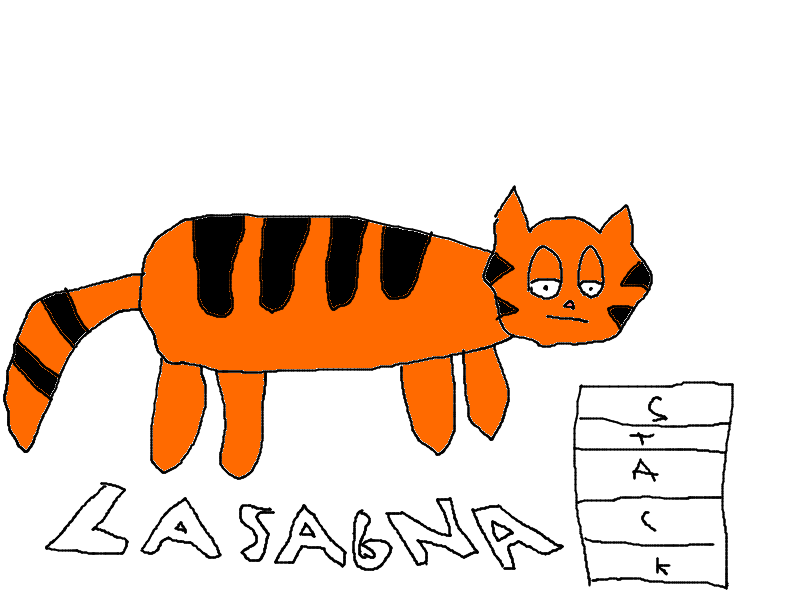Very small stack based language.
Read more here: https://pimpale.github.io/lasagna.html
make
This language is based entirely on the stack and string. Some examples:
(hello world) print
This prints hello world. Instead of ", ( and ) are used to represent strings, and can be nested. The string is pushed onto the stack character by character, with a leading and terminating null byte. printstr is one of a few built in functions defined in src/functions.c
Comments go from a # to the end of the line, and can be defined anywhere (even in a string). To include a literal # in the string, use a backslash
(hello
# This is a comment
world) println
This code would print out:
hello
world
However, if we escape the hash, it would be:
(hello
\# This is a comment
world) println
This results in
hello
# This is a comment
world
1
( # If
(if the following condition is true, this will print) println
)
( # Else
(if not, this will) println
)
ifelse
The ifelse function takes 3 parameters, first a u8 number and two strings to be evaluated. The first string will be evaluated if the number is not equal to zero, and the second string will be evaluated if it was zero. Since strings can be nested, it's not a problem that we have another one inside. In this case, since the 1st parameter of ifelse is 1, the first string is evaluated. This pushes the string "if the following condition is true, this will print" to the stack and then prints it. There is also eval in addition to ifelse that evaluates unconditionally.
1 2 +u8 print8
This program pushes the bytes 1 and 2, sums them, and prints the result. The order is left to right. For the most part, math is pretty self explanatory. Numeric literals must be less than 255.
In order to define a new word, you'll have to use the mkfun function
((hello) println) (say-hello) mkfun
Make sure that this file is in the current directory. The word definition is instantly available to you with no reload. Type
say-hello
within the interactive prompt. It should print out hello world.
Loops loop forever as long as the value on the stack is not 0. They pop the value of the stack before executing the body.
To print a word 10 times:
10
(
(a word) println
1 -u8
dupu8
) loop
Fizzbuzz:
100
1 ( # loop
# Although the loop counts down, we must count up
dupu8
100 -u8
dupu8 3 %u8 0 ==u8 dupu8 5 %u8 0 ==u8 &&u8 #if
(
(fizz buzz) println
)
# Else
(
dupu8 3 %u8 0 ==u8 #if
(
(fizz) println
)
# Else
(
dupu8 5 %u8 0 ==u8 #if
(
(buzz) println
) () ifelse
) ifelse
) ifelse
dropu8 # Drop the 100 - version
1 -u8 # Subtract 1 from counter
dupu8 # Make copy for loop to consume
) loop
